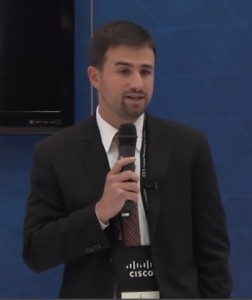The Federation of State Medical Boards has come forth with a proposal to expedite the process of doctors getting licensed in additional states, hopefully weakening one of the biggest regulatory barriers to the promulgation of telemedicine. The proposal takes the form of an "interstate compact", which is a legally binding agreement between states that is described in the US Constitution as a way for states to work out legal issues together without creating federal legislation.
"We met in Dallas for a couple days and talked about various models," Jonathan Jagoda, Director of Federal Government Relations with the Federation of State Medical Boards said at the American Telemedicine Association conference in Baltimore in May. "A special telemedicine license, which 10 states currently have. Reciprocity. Status quo. And ultimately what the board came together in deciding was that an interstate compact was the most feasible and achievable method for facilitating multistate practice, expediting the licensure process, streamlining it, while ensuring that patient protection is able to be maintained through the state licensing process." (Correction: The original version of this article misquoted Jagoda as saying that the Federation met for 10 days, and that six states had a special license.)
The compact would create a new option for doctors seeking out-of-state licensure, allowing them to fill out one set of paperwork to apply for licenses in any state that signed the compact. It would not prevent doctors from having to pay fees for additional licenses. In addition, there would be stricter controls on what doctors can apply for the expedited process -- for instance, they must show evidence of board certification as a specialist and cannot be under investigation by their state medical board -- even if the outcome of the investigation is still pending.
A commission created by the compact would serve as a clearinghouse for applications, as well as for information about disciplinary and legal actions by the state medical boards. So if a doctor's license was revoked in one state, it could automatically be revoked in all other states covered by the compact. Jagoda said at ATA he expects the proposal to start going to state legislatures by next year.
Jonathan Linkous, CEO of the American Telemedicine Association, believes the Federation's proposition does not go far enough.
"Their model is not a reciprocity model," Linkous told MobiHealthNews. "The physician would still have to pay a fee to every state, probably [also] a processing fee, and have a third party handle the paperwork, which may or may not be a good thing. And we don’t know if all the states will adopt it."
The ATA estimates that fees for additional out of state licenses already cost doctors $200 million to $300 million a year, and this proposal would do little to alleviate that. A reciprocity model would simply allow any one state's medical license to be accepted as valid in any other state, similar to how a driver's license lets you drive in any state. Another model, like the one used by airline pilots, is to have a single, national licensing body.
Linkous says the Federation is shying away from these options because they take the power away from state medical boards. At his talk at ATA, however, Jagoda maintained it was a matter of the most efficient solution that had the best chance of being put into effect quickly.
Medical license reciprocity already exists in federal law in a limited case: the STEP Act of 2011 allows military doctors to practice anywhere in the United States if they have a valid license in their home state. Other telemedicine legislation that has been proposed (but not passed) in recent years would expand that reciprocity to Veterans Affairs doctors or even to any doctor affiliated with Medicare.
"I’m trying to find a line here that isn’t too harsh for the Federation, cause I think they’re trying to do the right thing," said Linkous. "But I think the proposal they have doesn’t really solve the big problems we have with licensure."













